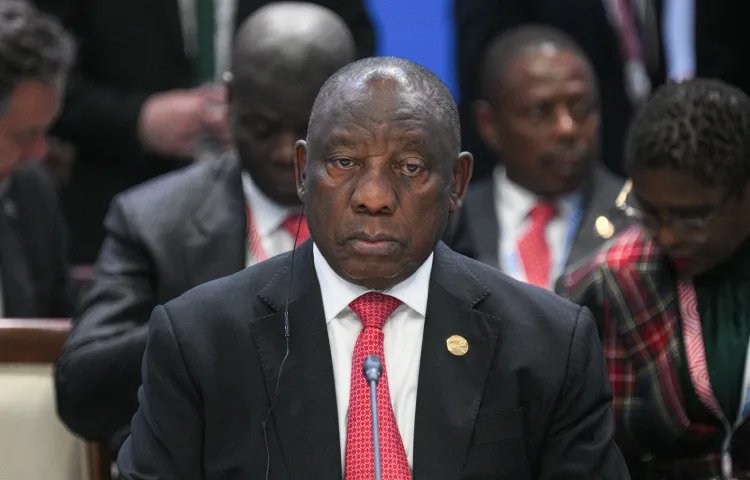How is the South African President Advocating for Workers' Rights?

Synopsis
Key Takeaways
- Inclusive economic growth is vital for improving worker conditions.
- Addressing historical injustices is a priority for the government.
- Businesses must promote diversity and inclusion actively.
- Engagement with labor organizations is crucial for strengthening worker rights.
- Progress has been made, but more work is needed to achieve equity.
Cape Town, May 5 (NationPress) South African President Cyril Ramaphosa on Monday emphasized the critical need for fostering inclusive economic growth and generating job opportunities, while safeguarding the rights and achievements of workers nationwide.
"In this pivotal moment, as we focus on inclusive economic growth and job creation, we must unite in our efforts to enhance the lives of every South African worker. Let us leverage the hard-earned victories of workers to forge new pathways for all," Ramaphosa expressed in his weekly newsletter.
Reflecting on the nation’s past, Ramaphosa pointed out that during apartheid, black workers were systematically stripped of their rights and barred from unionization.
While recognizing the advancements made since the enactment of employment equity laws, he stressed that additional efforts are necessary to reshape the racial dynamics of economic ownership, governance, and management.
"This is why part of our G20 (Group of 20) presidency includes dialogues with labor to strengthen worker rights. We have had productive discussions with the International Trade Union Confederation and other stakeholders on this issue," he added.
The president assured that South Africa will persist in utilizing its progressive labor laws to rectify past injustices and convert these protections into real benefits for workers, as reported by the Xinhua news agency.
He also urged businesses to implement necessary actions to ensure that their workplaces embody the essence of these laws.
"Companies need to go beyond mere compliance by actively promoting diversity and inclusion as outlined in our constitution, addressing historical disparities, and creating opportunities for underrepresented groups among their employees, including women, youth, and individuals with disabilities," Ramaphosa concluded.









